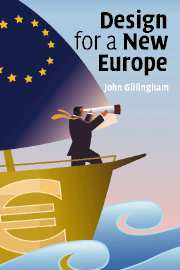Postscript: Neither Superstate nor New Market Economy
Published online by Cambridge University Press: 18 August 2009
Summary
What is said of old soldiers also applies to bureaucracies that have had their day: they never die, just fade away. Will the same also be true of the European Union (EU)? The EU is entering a period of hibernation. It will last until, at some future date, the temperature rises, birds sing, bees buzz, fish hatch, the sun shines again, and tourists return to national parks. During this extended period of rest and regeneration, the heart rate drops low enough to sustain only vital functions and does not rise again until the massive fat accumulated from the feeding season has burned off and hunger returns.
The EU cannot advance until it has a popular mandate and will remain gridlocked in the foreseeable future. It's time for triage, to decide between what is worth keeping and what can no longer survive. The EU had become nearly dysfunctional even before the two referenda exposed its widespread unpopularity. The Brussels machinery sputtered and misfired, gasped and wheezed, and got nowhere. Individual member states have since turned inward and gone their separate ways in foreign policy. The notion of Europe as a single economic and political bloc is also, because of globalization, rapidly becoming obsolete. In a world galloping ahead, Europe is falling by the wayside because institutions designed for economic and political union retard growth and weaken democracy. Every recent attempt to improve the situation has worsened it. The repeated failures of elitist methods have gone far to discredit the European Idea.
- Type
- Chapter
- Information
- Design for a New Europe , pp. 220 - 234Publisher: Cambridge University PressPrint publication year: 2006

